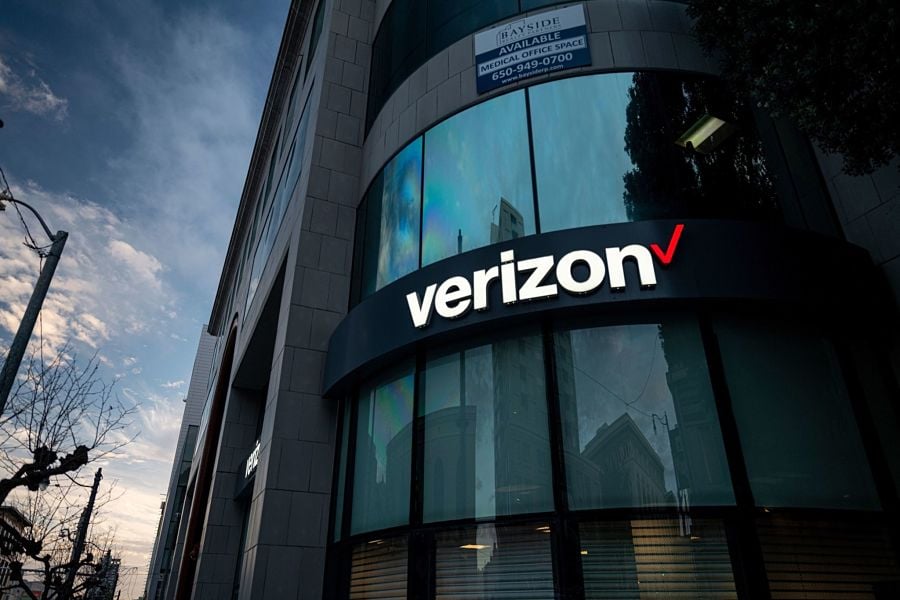

Verizon will pay $30 million to settle a 2016 lawsuit over an underperforming hedge fund the plaintiffs alleged the company dragged its feet in removing from its retirement plan.
That large settlement followed the court’s denial of summary judgment earlier this year for the defendants. A trial was set to begin this week, although the parties reached an agreement a month ago. The details of that agreement, including the $30 million figure, were published in court records filed Friday.
As much as a third of the amount will go to the law firms representing the class. The remainder will go to plan participants, as tax-deferred contributions to their accounts or rollovers into traditional IRAs, according to the agreement.
The development sends an uncomfortable message to retirement plan advisors and other fiduciaries, said Daniel Aronowitz, principal of Euclid Specialty Managers, a fiduciary liability insurance firm.
“I find this disappointing, because when we analyzed the Verizon case, based on the public records, it appeared the Verizon retirement plan fiduciary committee were very active in monitoring the investments,” Aronowitz said.
Much of the reason why the plaintiffs survived a motion for summary judgment was because of testimony from two expert witnesses who claimed that Verizon should have removed the hedge fund, which was used within the plan’s target-date series, after three years of underperformance. Although Verizon had switched weightings and managers within that fund, it waited longer before outright removing the investment, as the firms providing investment-monitoring guidance used a lengthier timeframe for evaluating returns, Aronowitz noted.
“That’s a troubling decision, and it led to this disappointing, large settlement,” he said. “That evidence, in my opinion, is dubious.”
That investment option, a hedge fund of funds, was the Global Opportunity Fund. Although it had a target rate of return of 12% when it was added to the plan in 2007, that rate was lowered twice, and its annualized performance ranged from -10.32% to 13.88% between 2007 and 2016, the plaintiffs stated. The aggregate return by the end of 2016 was 1.4%, according to court records.
Although the plaintiffs also alleged fiduciary breaches over the target-date series in the retirement plan, those claims did not survive a motion to dismiss. The remaining claims were tied to the Global Opportunity Fund.
As of the end of 2021, the Verizon Savings Plan for Management Employees represented more than $31 billion among nearly 144,000 participants, data from the Department of Labor show.
Although the hedge fund was “a very sophisticated investment,” the decision to allow the case to proceed “informs plan fiduciaries to be very careful to do anything innovative or anything outside of the box,” Aronowitz said.
Although having a documented, prudent process for selecting and monitoring investment options can be a good defense against fiduciary claims under the Employee Retirement Income Security Act, this case raised the question about the effectiveness of the process used by Verizon’s plan committee, Aronowitz said.
“This was another case that was challenging the result and working backward to say, ‘your process was flawed,’” he said.
The settlement came just ahead of a separate, major victory for Yale University in defending itself in trial. The university was sued over its 403(b) plan in 2016 – one of numerous cases brought by law firm Schlichter Bogard.
Many Erisa lawsuits over excessive fees or underperformance don't make it to trial, as they are either dismissed, awarded summary judgment or settled.
“Yale is interesting, because what this shows, in my opinion, is that these cases are a crapshoot,” Aronowitz said.
At the trial, Yale was successful in showing that it had used a thoughtful process in monitoring its plan and acted timely in making changes to lower record-keeping fees, he said.
“Yale proves that it is hard to prove causation in the trial,” he said. “It’s hard to compare, other than to say, ‘You win some and lose some.’”
Stephen Rosenberg, partner at the Wagner Law Group, wrote in a recent post that the Yale case is “one of the most significant Erisa excessive fee class actions ever filed” and that the jury’s decision in that case vindicates his view that defendants in such cases should take the lawsuits to conclusion.
“It also should not be overlooked that this was not just a trial, but a jury trial, with the jury returning a verdict in favor of the plan sponsor rather than in favor of the university’s employees, despite the concerns voiced in some corners of the Erisa bar over having a jury, rather than a judge, decide the case,” Rosenberg wrote.

Relationships are key to our business but advisors are often slow to engage in specific activities designed to foster them.

Whichever path you go down, act now while you're still in control.

Pro-bitcoin professionals, however, say the cryptocurrency has ushered in change.

“LPL has evolved significantly over the last decade and still wants to scale up,” says one industry executive.

Survey findings from the Nationwide Retirement Institute offers pearls of planning wisdom from 60- to 65-year-olds, as well as insights into concerns.
Streamline your outreach with Aidentified's AI-driven solutions
This season’s market volatility: Positioning for rate relief, income growth and the AI rebound
